Human trafficking through unfair labour practices, coercion and exploitation
Human trafficking through unfair labour practices, coercion and exploitation
Migrants Resource Centre Canada forum
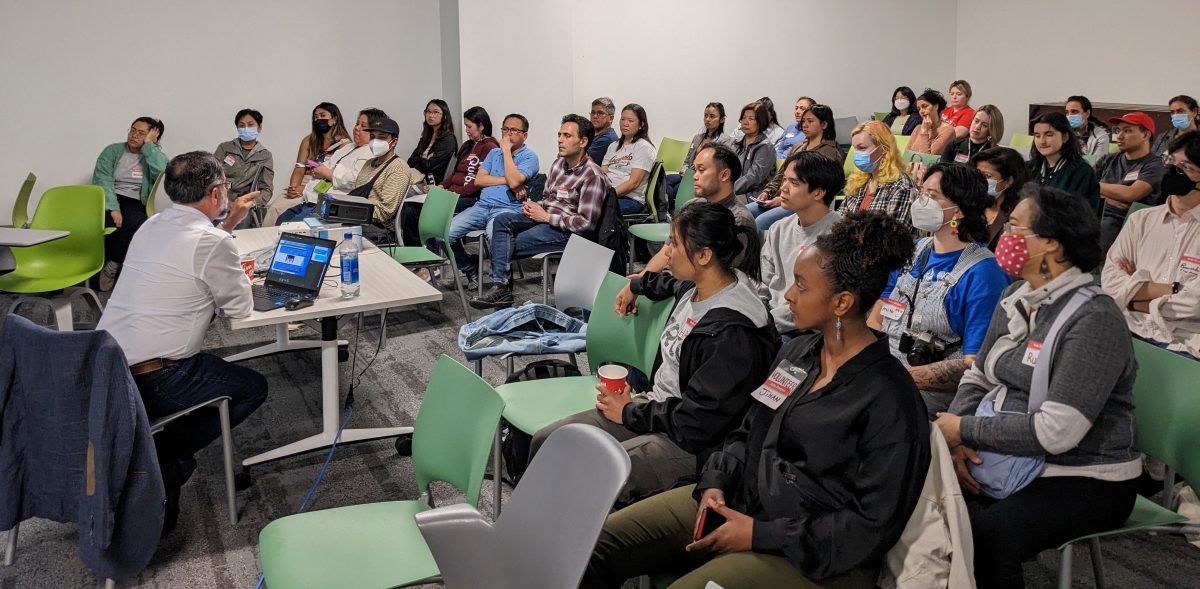
Participants of the forum. Photo: Rosie L.
By Veronica C. Silva
The Philippine Reporter
June 6, 2023
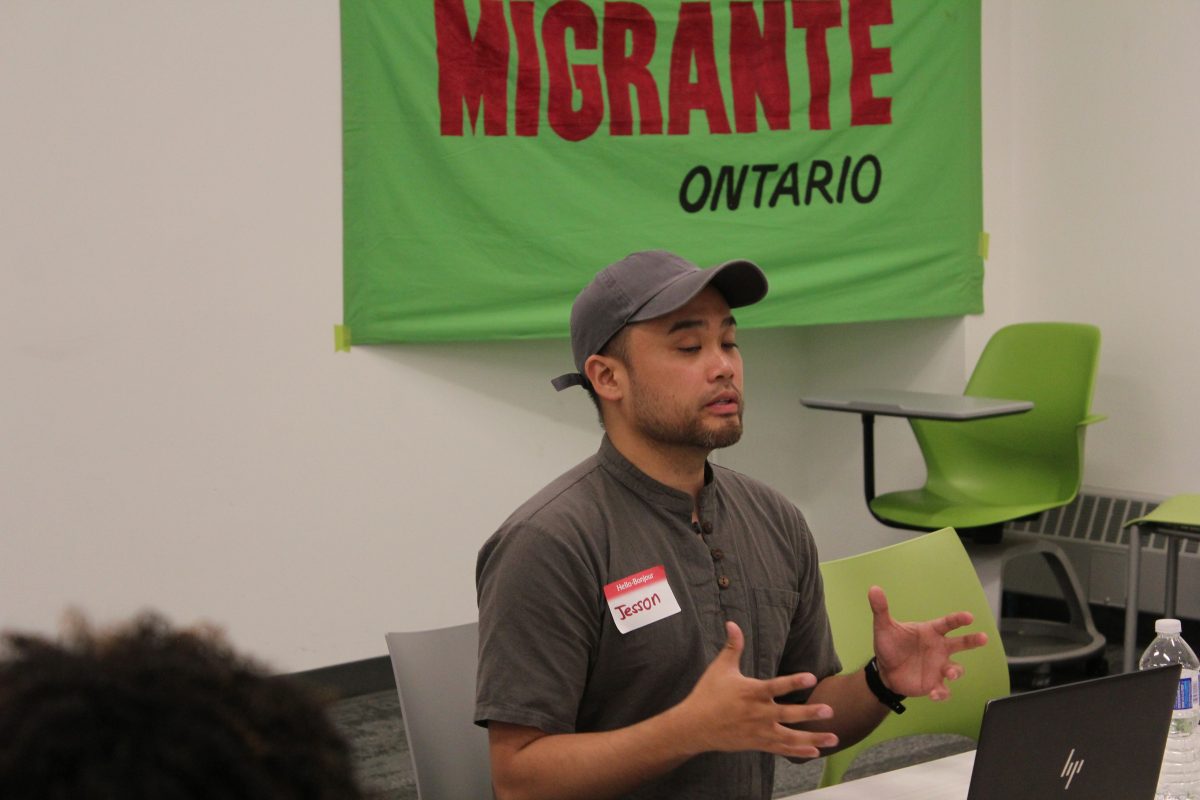
Jesson Reyes, Executive Director, MRCC
Photo: Aidan Patterson
A recent forum on human trafficking sheds light on another prevalent way that immigrants are at risk – through unfair labour practices.
The forum on 21st century human trafficking funded by the Department of Justice Canada was organized by Migrants Resource Centre Canada (MRCC) in commemoration of the Victims and Survivors of Crime Week.
Sherald Sanchez, research and advocacy lead of MRCC, said labour trafficking does not receive as much attention in media and policy even though there are recorded cases in Canada.
Labour trafficking is defined by Canada as a form of human trafficking. “It involves recruiting, moving, or holding victims to coerce them into doing any kind of work,” according to the Government of Canada website.
A report by the FCJ Refugee Centre and the Canadian Centre to End Human Trafficking noted increased concern for cases of labour exploitation among immigrant workers due to the demand for workers in Canada. “Many migrant workers are not aware that they have labour rights while working in Canada,” stated the report titled “It Happens Here: Labour Exploitation Among Migrant Workers During the Pandemic” released in February 2023. The report added that exploitation happens in immigrants’ home countries and in Canada.
Despite the reported cases, Sanchez noted that sex trafficking, another form of human trafficking, is getting more attention in media and policy. This encouraged the MRCC to organize the forum.
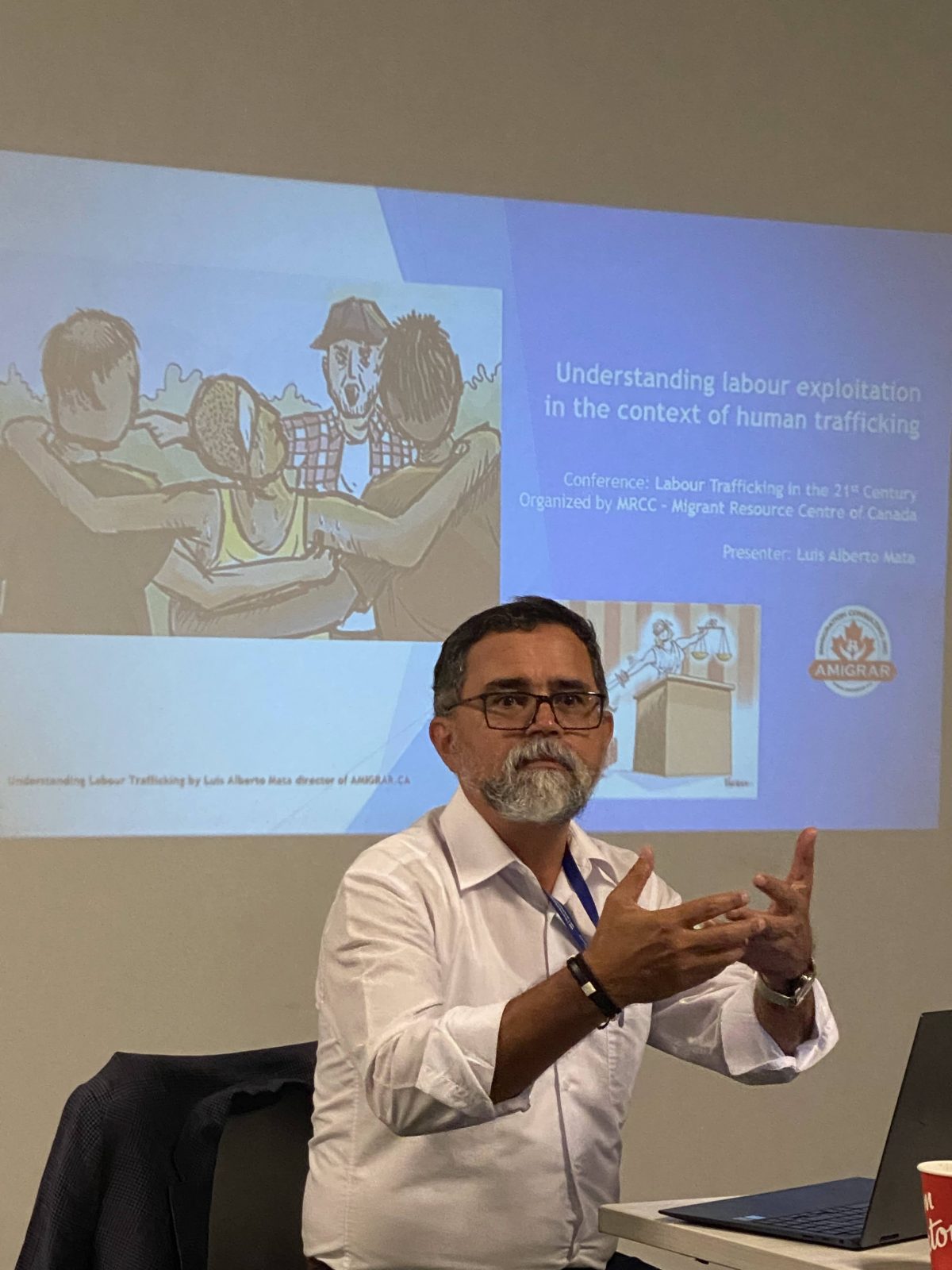
Luis Alberto Mata, long-time migrant and refugee rights advocate, coordinator of Amigrar Immigration Consulting Inc.
Luis Mata, an immigration specialist with years of experience in anti-human trafficking, said that most of the time, labour trafficking is approached under the scope of sex trafficking, although they are different. Unlike sex trafficking where victims are confined in a place, victims of labour trafficking have the freedom of movement. However, labourers experience coercion differently.
“Coercion is imperceptible, invisible [in labour trafficking] but at the same time dangerous,” said Mata, adding that coercion for some may not be that obvious because they have been used to the situation in their home countries where there is violence and poverty.
He explained that coercion can also mean abused labourers refuse to talk for fear that they may lose their jobs or work permit.
Mata highlighted in the forum that labour trafficking as a form of human trafficking occurs when any one in the three basic factors — the act, the means, and the purpose – happen.
An “act” of human trafficking could be recruitment or transport of a worker; a “means” could be fraud or deception; for the “purpose” of sexual exploitation or forced labour.
He also noted that there are international and domestic labour trafficking. Domestic victims get support and have access to networks while international victims, such as migrant workers, don’t.
“Immigrant policies are designed to facilitate imbalance in power. Migrant workers are vulnerable,” he said, as in the case of workers with work permits tied to specific employers.
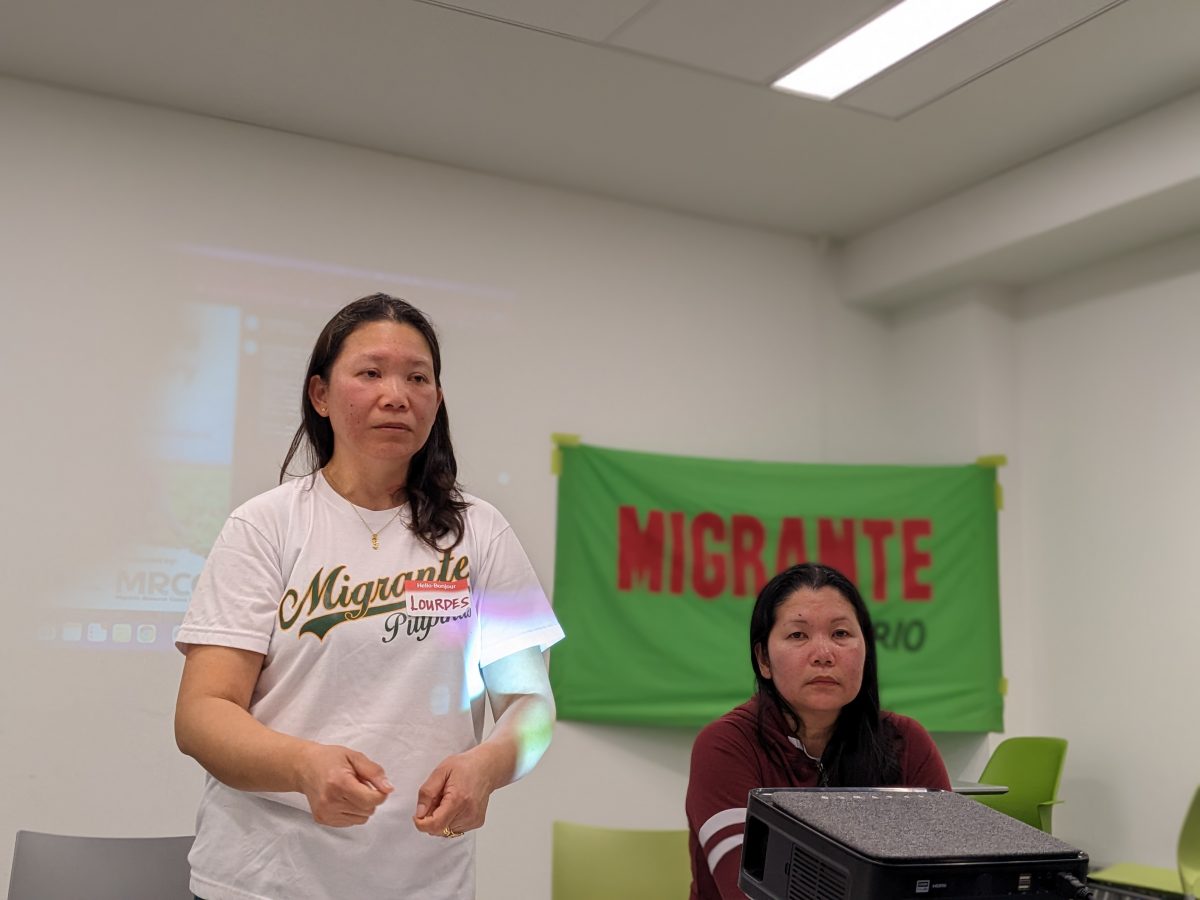
Lourdes de la Peña and Marisol Bobadilla, of Migrante Ontario and J4M4
Mushroom 4
To attest to labour trafficking happening in a G7 country like Canada, the forum featured two victims of human trafficking: Filipino migrant workers Lourdes de la Pena, and Marisol Bobadilla, who are half of the Justice for the Mushroom 4 workers or Mushroom 4.
The group of four migrant workers brought attention to their alleged exploitation and abuse in the hands of an illegal recruiter. The four lost their immigration status but some, including Bobadilla, were eventually granted residency based on humanitarian and compassionate grounds.
Bobadilla continues to fight for migrant workers’ rights. She said: “Fighting for our rights does not mean that we are bad workers. Let’s not be afraid to fight for what is right because if we continue to be afraid, we will continue to be abused by bad people — employers and people who only want to get rich even though there are workers who are struggling.”
Sanchez noted that Filipino migrant workers need help from consular offices, but workers do not want the option to go back home.
At the forum, participants also covered the role of G7 in migrant labour policies.
“The G7 nations not only host a large number of migrants globally, but it is also influential in dictating the policies and regulations that govern the movement of migrants,” said Jesson Reyes, managing director of MRCC.
He spoke about the campaign of the International Migrants Alliance, an alliance of migrants and refugees globally where MRCC is an associate member, against the G7 bloc.
“In the eyes of the G7, the migration of workers from their countries is a tool for their economic development and growth. Migration is really for the benefit of businesses and their economic growth. They are dependent on migrant workers for their cheap labor. The greed for power and money of the G7 countries has led to the massive exploitation of people (working class) and our mother nature,” he said.
The forum was held on May 19 when the G7 Summit was being held in Hiroshima, Japan. The G7 bloc of advanced economies includes the US, Canada, France, Japan, UK, Italy, and Germany.
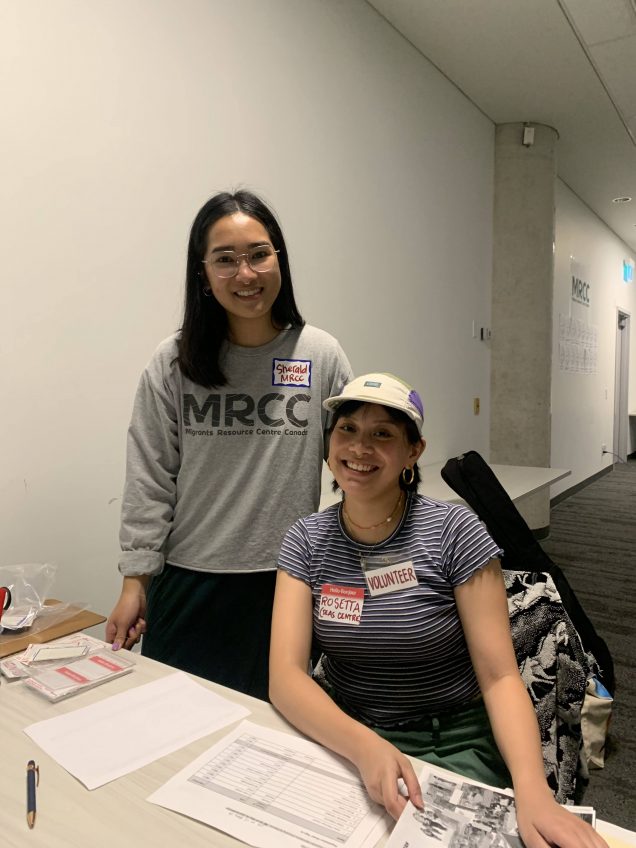
Sherald Sanchez, Research and Advocacy Lead of Migrants Resource Centre Canada, Rosie Lucente of Anakbayan Toronto
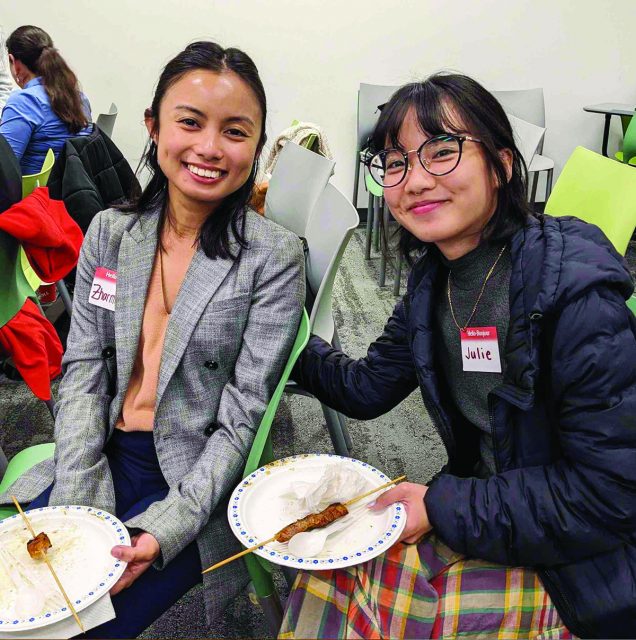
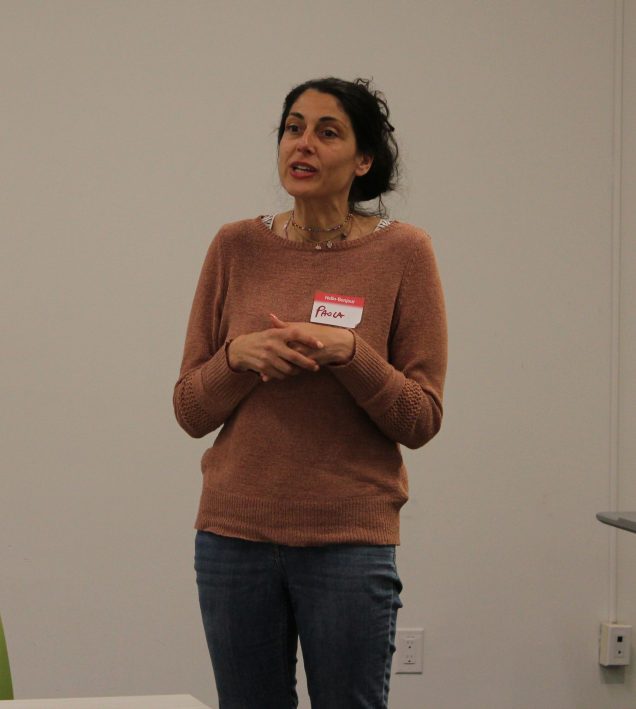
Paola Carmagnani of The Canadian Centre to End Human Trafficking
Comments (0)